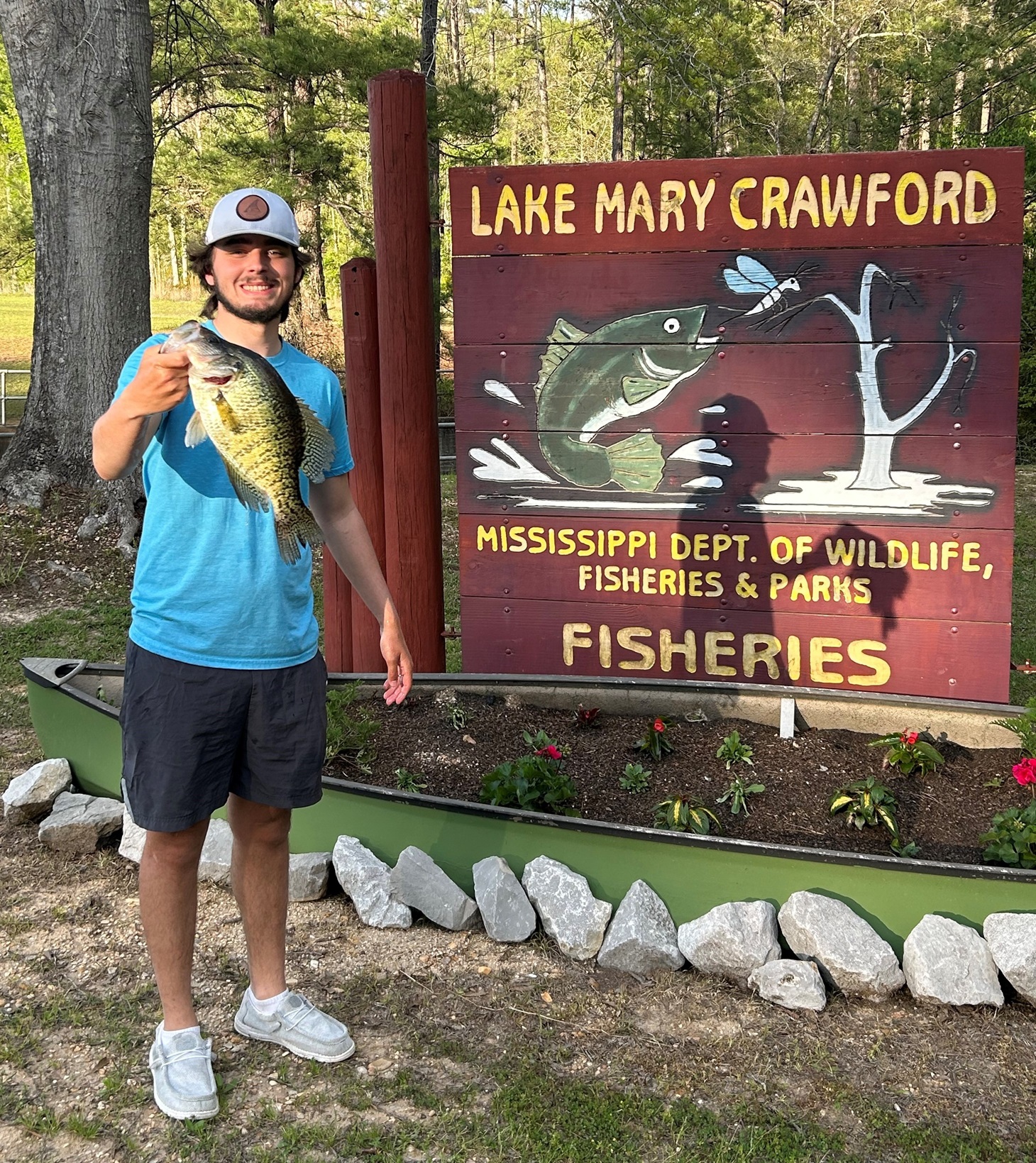
The Fisheries Bureau operates 18 prime State Fishing Lakes throughout the state that total over 3,300 acres of picturesque waters. Sport fishing licenses and permits are required to fish these lakes. Only rod and reel or pole fishing is allowed on State Fishing Lakes.
State Fishing Lakes have paved boat launching ramps and abundant bank fishing areas, including handicap accessible fishing piers. Fishing is not allowed from courtesy piers adjacent to boat ramps. Night fishing is allowed from the bank or boats with the exception of Lake Bill Waller.
Camping is available at State Fishing Lakes, with the exception of Lakes Bogue Homa, Bill Waller, and Walthall. Campsites cannot be reserved and are available on a first come, first served basis.
Each State Fishing Lake maintains a list of record fish which can be viewed on each lake’s page. Anglers who catch a state lake record fish will receive a certificate from MDWFP, and a copy of the certificate will be on display at the lake’s office. Fish that qualify for a state lake record include largemouth bass, bluegill, redear sunfish, crappie, and catfish. Potential record fish must be verified by a member of the Fisheries Bureau staff.
Eighteen State Parks contain lakes that total over 3,100 water acres. Sport fishing licenses and permits are required to fish these lakes. Only rod and reel or pole fishing is allowed on State Park Lakes.
State Park Lakes have excellent bank fishing areas, including handicap-accessible fishing piers and most lakes have a paved boat launching ramp.
Most State Parks offer camping and other recreational facilities. Visit the individual park page to learn more.

MDWFP fisheries biologists sample and manage fish populations in many other water bodies including large reservoirs such as Grenada Lake, oxbow lakes in the Mississippi delta., the Tennessee-Tombigbee Waterway and coastal waters such as the Pascagoula River. These water bodies are denoted by an * in the Select a Lake drop down box.
Stay ahead of the game with weekly fishing reports from our fisheries biologists. Get the latest updates on conditions in state fishing lakes, state park lakes, and other managed waters to make your next fishing trip a success.
MDWFP Fisheries Biologists assess fish populations in Mississippi's waters using various sampling techniques like electrofishing and netting methods. Biologists also age fish using otoliths and fin spines. Explore detailed summaries of their findings to enhance your fishing strategy and knowledge of our aquatic ecosystems. 'Reel Facts' pages are updated annually and you can find the latest information on individual lake pages.
Check out our depth maps for each lake on our individual lake page. These maps show the contours of the lake bed, helping you find the best fishing spots and navigate the waters safely. Find them on the individual lake pages.